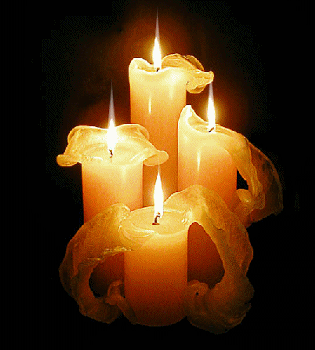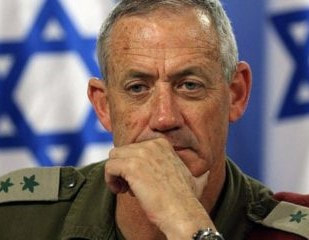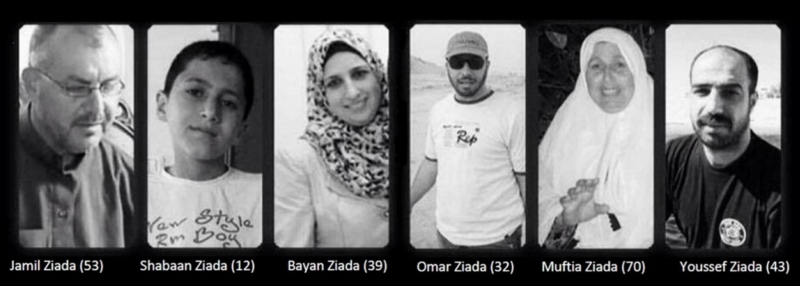17 sept 2019

On Tuesday 17th September, the District Court of The Hague will hold a hearing on the admissibility of a case brought by Dutch citizen Ismail Ziada against the former Chief of General Staff of the Israeli Defence Force (IDF), Benny Gantz and former Commander of the IDF Air Force, Amir Eshel for the bombing of the Ziada family home in Gaza.
The attack resulted in the death of six members of Mr Ziada’s immediate family.
Mr Ziada, who is of Palestinian origin, contends that he is unable to gain access to justice in Israel due to the discriminatory practices faced by Palestinians seeking accountability for war crimes. The case is being pursued in accordance with Dutch law which upholds the principle of universal jurisdiction in civil proceedings for citizens who are unable to gain access to justice elsewhere.
It is a unique case and the first time a Palestinian has been able to make use of civil litigation on the basis of universal jurisdiction to gain access to justice for war crimes. Mr Ziada is represented by Liesbeth Zegveld, a prominent human rights lawyer from Amsterdam.
The bombing of the Ziada family home in the Bureij refugee camp, Gaza, took place on July 20th, 2014. It was a targeted IDF attack that resulted in the death of Ismail Ziada’s 75-year-old mother, three brothers, his sister-in-law, a 12-year-old nephew and a visiting friend. Mr Ziada contends that the attack on the family home was a violation of international humanitarian law and constituted a gross violation of internationally recognised human rights principles.
During the Israeli attacks on Gaza in 2014, approximately 2000 Palestinians, including 500 children, were killed. The Israeli military operation, codenamed “Protective Edge”, was a widespread and systematic attack on civilian targets with the vast majority of casualties being non-combatants.
Mr Gantz and Mr Eshel claim immunity from the Dutch court and contend that Mr Ziada should have presented his claim in an Israeli court.
Neither Mr Gantz nor Mr Eshel are expected to be present on the day of the hearing. They will be represented by the law firms Florent and Jahea Raymakers.
Since his retirement, Mr Gantz has formed a new political party “Hosen Le-Yisrael” (Israel Resilience Party). On the day of the hearing, Mr Gantz will be running for office against Benjamin Netanyahu in the Israeli national elections.
For further information please contact the Palestine Justice Campaign spokesperson by email at [email protected] or by telephone at +31 619895090.
The Palestinian Justice Campaign is an international, single-issue group of concerned citizens, trade unionists and human rights workers who volunteer to assist the Ziada family in their pursuit for justice.
Via Al Mezan Center for Human Rights.
The attack resulted in the death of six members of Mr Ziada’s immediate family.
Mr Ziada, who is of Palestinian origin, contends that he is unable to gain access to justice in Israel due to the discriminatory practices faced by Palestinians seeking accountability for war crimes. The case is being pursued in accordance with Dutch law which upholds the principle of universal jurisdiction in civil proceedings for citizens who are unable to gain access to justice elsewhere.
It is a unique case and the first time a Palestinian has been able to make use of civil litigation on the basis of universal jurisdiction to gain access to justice for war crimes. Mr Ziada is represented by Liesbeth Zegveld, a prominent human rights lawyer from Amsterdam.
The bombing of the Ziada family home in the Bureij refugee camp, Gaza, took place on July 20th, 2014. It was a targeted IDF attack that resulted in the death of Ismail Ziada’s 75-year-old mother, three brothers, his sister-in-law, a 12-year-old nephew and a visiting friend. Mr Ziada contends that the attack on the family home was a violation of international humanitarian law and constituted a gross violation of internationally recognised human rights principles.
During the Israeli attacks on Gaza in 2014, approximately 2000 Palestinians, including 500 children, were killed. The Israeli military operation, codenamed “Protective Edge”, was a widespread and systematic attack on civilian targets with the vast majority of casualties being non-combatants.
Mr Gantz and Mr Eshel claim immunity from the Dutch court and contend that Mr Ziada should have presented his claim in an Israeli court.
Neither Mr Gantz nor Mr Eshel are expected to be present on the day of the hearing. They will be represented by the law firms Florent and Jahea Raymakers.
Since his retirement, Mr Gantz has formed a new political party “Hosen Le-Yisrael” (Israel Resilience Party). On the day of the hearing, Mr Gantz will be running for office against Benjamin Netanyahu in the Israeli national elections.
For further information please contact the Palestine Justice Campaign spokesperson by email at [email protected] or by telephone at +31 619895090.
The Palestinian Justice Campaign is an international, single-issue group of concerned citizens, trade unionists and human rights workers who volunteer to assist the Ziada family in their pursuit for justice.
Via Al Mezan Center for Human Rights.
10 sept 2019

Haaretz Israeli newspaper reported that the Dutch Central Court in The Hague will discuss, next Tuesday — which coincides with Israeli elections — whether it is within its competence to try Israeli politician Benny Gantz for war crimes committed during the 2014 Israeli aggression on the Gaza Strip.
A civil lawsuit was filed last year, against the former Israeli Chief of Staff Gantz and former Commander of the Air Force Amir Eichel, by Dutch citizen Ismail Ziada, a resident of Gaza’s al-Bureij refugee camp and whose home was bombed by Israeli forces on July 20th, 2014. At the time, Gantz served as the 20th Chief of General Staff of the Israeli army.
In the bombing, Ziada lost his mother, three of his brothers, his sister-in-law, a nephew, and a friend who was visiting the family. Because of the Egyptian-backed Israeli blockade on Gaza, Ziada, who was in the Netherlands at the time, was unable to attend the funeral.
Ziada said, in his case, that Israeli courts do not allow a fair and genuine trial for war crimes, and, so, the case was filed under Dutch law, which upholds the principle of universal trial, in cases of citizens who have been denied access to justice elsewhere.
This is the first time that a Palestinian has been able to use civil prosecution for war crimes.
PNN further reports that Gantz and Eichel have asked the court to dismiss the case once and for all. Their lawyers claimed that, as officials in Israel, they could claim immunity unless they acted with intent to cause harm or disregard the possibility of harm.
They rejected the allegation that they had committed a war crime, and claim that Ziada had not filed a lawsuit before the Israeli court, so his claims of inaccessibility to Israeli courts were only hypothetical.
In a lawsuit filed against Gantz and Eichel, by attorney Liesbeth Zegveld, it was stated that the bombing of residential houses was disproportionate and done without taking the necessary precautions, and reflected a pattern of actions taken by senior Israeli officials, during the last military aggression on the Gaza Strip — therefore, these actions are to be classified as war crimes.
The Israeli army described the bombing of Ziada’s house as an air strike on a “building used as a war room” by Hamas, in Bureij.
A civil lawsuit was filed last year, against the former Israeli Chief of Staff Gantz and former Commander of the Air Force Amir Eichel, by Dutch citizen Ismail Ziada, a resident of Gaza’s al-Bureij refugee camp and whose home was bombed by Israeli forces on July 20th, 2014. At the time, Gantz served as the 20th Chief of General Staff of the Israeli army.
In the bombing, Ziada lost his mother, three of his brothers, his sister-in-law, a nephew, and a friend who was visiting the family. Because of the Egyptian-backed Israeli blockade on Gaza, Ziada, who was in the Netherlands at the time, was unable to attend the funeral.
Ziada said, in his case, that Israeli courts do not allow a fair and genuine trial for war crimes, and, so, the case was filed under Dutch law, which upholds the principle of universal trial, in cases of citizens who have been denied access to justice elsewhere.
This is the first time that a Palestinian has been able to use civil prosecution for war crimes.
PNN further reports that Gantz and Eichel have asked the court to dismiss the case once and for all. Their lawyers claimed that, as officials in Israel, they could claim immunity unless they acted with intent to cause harm or disregard the possibility of harm.
They rejected the allegation that they had committed a war crime, and claim that Ziada had not filed a lawsuit before the Israeli court, so his claims of inaccessibility to Israeli courts were only hypothetical.
In a lawsuit filed against Gantz and Eichel, by attorney Liesbeth Zegveld, it was stated that the bombing of residential houses was disproportionate and done without taking the necessary precautions, and reflected a pattern of actions taken by senior Israeli officials, during the last military aggression on the Gaza Strip — therefore, these actions are to be classified as war crimes.
The Israeli army described the bombing of Ziada’s house as an air strike on a “building used as a war room” by Hamas, in Bureij.
28 may 2019

Israeli army's chief military prosecutor, Brig. Gen. Sharon Afek, Israel
Israel and United States launch attack on ICC; military advocate general says Israel has strong legal system and there's no reason for scrutiny from the court
Israel and the United States began what looks like a coordinated legal attack against the jurisdiction of the International Criminal Court in The Hague on Tuesday. The Israel Defense Forces military advocate general, Maj. Gen. Sharon Afek, and the general counsel of the U.S. Department of Defense, Paul Ney, claimed that the court has no jurisdiction to deal with their military conduct.
Afek said that the court has no authority over issues that concern Israel’s conflict with the Palestinians, while Ney accused it of an erroneous analysis of allegations against the U.S. military and also criticized its attitude toward Israel.
The two spoke on the first day of the IDF International Conference on the Law of Armed Conflict, which is taking place in Herzliya this week.
Afek said the Israeli army’s position is that “The International Criminal Court in The Hague has no jurisdiction to discuss matters concerning the Israeli-Palestinian conflict.” He added that “Israel is a law-abiding county, with an independent and strong judicial system, and there is no reason for its actions to be scrutinized by the ICC.”
The military advocate general said that instead of being a last resort for cases of genocide, “the ICC is sidetracked from dealing with the main issues for which it was founded and exceeds its legal jurisdiction.”
This is the first time that Ney spoke at a conference outside the United States in his capacity as general counsel. He used the platform for a reasoned attack against the ICC and for clarifications on the United States’ legal position.
Ney said that “international law is law made by states and for states. Other actors, such as nongovernmental organizations and academics, can play an important role, but states have the primary responsibility for developing and implementing international law.” He added that the law of war must be made by states that conduct military operations and are deeply committed to the rule of law, “like Israel and others represented here.” He also said that Israel was on the forefront of addressing these challenges.
The opinions expressed by the two senior prosecutors are known, but this time, it seems they were more sharply worded. The fact that they spoke on the same platform provided their comments with greater cumulative weight. In general, U.S. President Donald Trump’s administration is adopting a more belligerent and confrontational approach in its dealings with the court, as opposed to the administration of former President Barack Obama.
The Israeli defense establishment believes that if the court decides to act against Israel, the Americans will toughen their attitude toward it even more.
Ney said that “the United States has in no way consented to any exercise of jurisdiction by the ICC. The United States has not consented to ICC jurisdiction to adjudicate allegations against U.S. personnel, nor to the ICC’s evaluation of our own accountability efforts. We view such efforts by the ICC as a flagrant violation of our national sovereignty and as an attack on America’s rule of law.”
He added that “Like the United States, Israel is not a party to the Rome Statute [which ratifies the ICC’s status regarding member states]. As with the United States, the ICC has ignored the principle of consent to jurisdiction and engaged in an illegitimate effort to review Israeli actions.”
Ney rejected some human rights organizations’ arguments regarding civilian casualties during the military activity of the U.S.-led coalition against the Islamic State in Syria and Iraq. He rejected the assertion, which is supported by some countries, that killing civilians in a military operation is in itself a crime against the laws of warfare.
He stressed that “there is also a failure to distinguish between lawful and unlawful combatants, and in particular between state militaries with robust programs to ensure compliance with the law of war and terrorist groups whose method of warfare is to violate the law of war.”
Ney promised that “The United States will always stand with our friend and ally, Israel.”
At the conference, Afek also referred to the weekly demonstrations taking place along the border of the Gaza Strip. He said that Hamas is sending “thousands of Gaza’s residents to breach the border fence,” and that “This raises substantive legal questions, including what is the appropriate legal framework according to which the army needs to respond. These incidents are taking place on a border between two parties involved in an armed conflict, including both civilians and fighters.”
“They [Gaza’s residents] are led by a terrorist organization that deliberately uses civilians to carry out attacks,” the chief military prosecutor said.
Afek mentioned the petitions against implementing the open-fire protocol during the Gaza demonstrations were rejected by the High Court of Justice in December. This rejection, he said, is proof that Israel “is willing to discuss complex situations of laws regarding the armed conflict.”
He added that the great amount of attention Israel receives from international organizations is subverting the objectives of the court. Afek also referred to the fact that the UN Human Rights Council began an investigation of Israel and the incidents on the Strip border, and said that “The report on the subject, which was submitted by a group that is known for its anti-Israel prejudice, is erroneous and deficient regarding the law, the facts and the methodology.”
As for the Palestinian Authority, Afek said that it is conducting a delegitimization campaign against Israel when it acts resolutely in order to cause the ICC to investigate Israel. “We consider the PA’s efforts as another attempt to abuse these bodies in order to achieve its political intention,” he said. “These efforts undermine the functioning of the court.”
In a speech at the Israel Bar Association convention in Eilat on Sunday, the military prosecutor said that “Statements saying soldiers whose lives are in danger are allegedly afraid to shoot before consulting a lawyer are heard from time to time in the public discourse.” During the conference he replied to his critics, saying that “These statements have no grip on reality. A soldier who is in a life-threatening situation and acts to defend himself others is responsible for, is receiving and will continue receiving full backup [from the army].”
In April, U.S. President Donald Trump warned the Hague criminal court against trying to prosecute Israelis or Americans following a complaint by Palestinians, which have called for an ICC investigation of Israel.
"Any attempt to target American, Israeli, or allied personnel for prosecution will be met with a swift and vigorous response," Trump said.
"This is a major international victory, not only for these patriots, but for the rule of law," Trump said in a statement. "We welcome this decision and reiterate our position that the United States holds American citizens to the highest legal and ethical standards."
Trump's warning came in the wake of the ICC's investigations of Israeli actions in the West Bank and Gaza including the demolition of Palestinian property and eviction of Palestinians from the West Bank and East Jerusalem.
ICC Prosecutor Fatou Bensouda said in October, 2018 that "extensive destruction of property without military necessity and population transfers in an occupied territory constitute war crimes" under the Rome Statute treaty that established the ICC.
Israel and United States launch attack on ICC; military advocate general says Israel has strong legal system and there's no reason for scrutiny from the court
Israel and the United States began what looks like a coordinated legal attack against the jurisdiction of the International Criminal Court in The Hague on Tuesday. The Israel Defense Forces military advocate general, Maj. Gen. Sharon Afek, and the general counsel of the U.S. Department of Defense, Paul Ney, claimed that the court has no jurisdiction to deal with their military conduct.
Afek said that the court has no authority over issues that concern Israel’s conflict with the Palestinians, while Ney accused it of an erroneous analysis of allegations against the U.S. military and also criticized its attitude toward Israel.
The two spoke on the first day of the IDF International Conference on the Law of Armed Conflict, which is taking place in Herzliya this week.
Afek said the Israeli army’s position is that “The International Criminal Court in The Hague has no jurisdiction to discuss matters concerning the Israeli-Palestinian conflict.” He added that “Israel is a law-abiding county, with an independent and strong judicial system, and there is no reason for its actions to be scrutinized by the ICC.”
The military advocate general said that instead of being a last resort for cases of genocide, “the ICC is sidetracked from dealing with the main issues for which it was founded and exceeds its legal jurisdiction.”
This is the first time that Ney spoke at a conference outside the United States in his capacity as general counsel. He used the platform for a reasoned attack against the ICC and for clarifications on the United States’ legal position.
Ney said that “international law is law made by states and for states. Other actors, such as nongovernmental organizations and academics, can play an important role, but states have the primary responsibility for developing and implementing international law.” He added that the law of war must be made by states that conduct military operations and are deeply committed to the rule of law, “like Israel and others represented here.” He also said that Israel was on the forefront of addressing these challenges.
The opinions expressed by the two senior prosecutors are known, but this time, it seems they were more sharply worded. The fact that they spoke on the same platform provided their comments with greater cumulative weight. In general, U.S. President Donald Trump’s administration is adopting a more belligerent and confrontational approach in its dealings with the court, as opposed to the administration of former President Barack Obama.
The Israeli defense establishment believes that if the court decides to act against Israel, the Americans will toughen their attitude toward it even more.
Ney said that “the United States has in no way consented to any exercise of jurisdiction by the ICC. The United States has not consented to ICC jurisdiction to adjudicate allegations against U.S. personnel, nor to the ICC’s evaluation of our own accountability efforts. We view such efforts by the ICC as a flagrant violation of our national sovereignty and as an attack on America’s rule of law.”
He added that “Like the United States, Israel is not a party to the Rome Statute [which ratifies the ICC’s status regarding member states]. As with the United States, the ICC has ignored the principle of consent to jurisdiction and engaged in an illegitimate effort to review Israeli actions.”
Ney rejected some human rights organizations’ arguments regarding civilian casualties during the military activity of the U.S.-led coalition against the Islamic State in Syria and Iraq. He rejected the assertion, which is supported by some countries, that killing civilians in a military operation is in itself a crime against the laws of warfare.
He stressed that “there is also a failure to distinguish between lawful and unlawful combatants, and in particular between state militaries with robust programs to ensure compliance with the law of war and terrorist groups whose method of warfare is to violate the law of war.”
Ney promised that “The United States will always stand with our friend and ally, Israel.”
At the conference, Afek also referred to the weekly demonstrations taking place along the border of the Gaza Strip. He said that Hamas is sending “thousands of Gaza’s residents to breach the border fence,” and that “This raises substantive legal questions, including what is the appropriate legal framework according to which the army needs to respond. These incidents are taking place on a border between two parties involved in an armed conflict, including both civilians and fighters.”
“They [Gaza’s residents] are led by a terrorist organization that deliberately uses civilians to carry out attacks,” the chief military prosecutor said.
Afek mentioned the petitions against implementing the open-fire protocol during the Gaza demonstrations were rejected by the High Court of Justice in December. This rejection, he said, is proof that Israel “is willing to discuss complex situations of laws regarding the armed conflict.”
He added that the great amount of attention Israel receives from international organizations is subverting the objectives of the court. Afek also referred to the fact that the UN Human Rights Council began an investigation of Israel and the incidents on the Strip border, and said that “The report on the subject, which was submitted by a group that is known for its anti-Israel prejudice, is erroneous and deficient regarding the law, the facts and the methodology.”
As for the Palestinian Authority, Afek said that it is conducting a delegitimization campaign against Israel when it acts resolutely in order to cause the ICC to investigate Israel. “We consider the PA’s efforts as another attempt to abuse these bodies in order to achieve its political intention,” he said. “These efforts undermine the functioning of the court.”
In a speech at the Israel Bar Association convention in Eilat on Sunday, the military prosecutor said that “Statements saying soldiers whose lives are in danger are allegedly afraid to shoot before consulting a lawyer are heard from time to time in the public discourse.” During the conference he replied to his critics, saying that “These statements have no grip on reality. A soldier who is in a life-threatening situation and acts to defend himself others is responsible for, is receiving and will continue receiving full backup [from the army].”
In April, U.S. President Donald Trump warned the Hague criminal court against trying to prosecute Israelis or Americans following a complaint by Palestinians, which have called for an ICC investigation of Israel.
"Any attempt to target American, Israeli, or allied personnel for prosecution will be met with a swift and vigorous response," Trump said.
"This is a major international victory, not only for these patriots, but for the rule of law," Trump said in a statement. "We welcome this decision and reiterate our position that the United States holds American citizens to the highest legal and ethical standards."
Trump's warning came in the wake of the ICC's investigations of Israeli actions in the West Bank and Gaza including the demolition of Palestinian property and eviction of Palestinians from the West Bank and East Jerusalem.
ICC Prosecutor Fatou Bensouda said in October, 2018 that "extensive destruction of property without military necessity and population transfers in an occupied territory constitute war crimes" under the Rome Statute treaty that established the ICC.
14 apr 2019

US President Donald Trump has warned the International Criminal Court (ICC) of “swift and vigorous response” if the Hague-based tribunal investigates Americans and Israelis for war crimes.
Trump issued the warning on Friday, after ICC judges rejected a request by the court’s prosecutor to probe atrocities committed by US forces in Afghanistan.
Trump hailed the unusual ruling as a “major international victory,” claiming that the Americans and Israelis should be immune from ICC prosecution.
“Since the creation of the ICC, the United States has consistently declined to join the court because of its broad, unaccountable prosecutorial powers; the threat it poses to American national sovereignty; and other deficiencies that render it illegitimate,” he said.
“Any attempt to target American, Israeli, or allied personnel for prosecution will be met with a swift and vigorous response,” he added.
Amnesty International denounced the ICC’s decision as a “shocking abandonment of victims” that would “weaken the court’s already questionable credibility.”
Biraj Patnaik, South Asia Director at Amnesty International, stressed that the ruling would be seen as a “craven capitulation to Washington’s bullying.”
Last month, US Secretary of State Mike Pompeo announced that the US would withdraw or revoke visas for ICC staff who prosecute American troops in Afghanistan, as well as their allied personnel, including Israelis.
He also warned about potential economic sanctions “if the ICC does not change its course.”
US National Security Adviser John Bolton had also threatened to revoke the visas of ICC personnel if the court pursued charges against members of the US military over crimes in Afghanistan.
Earlier this month, the US revoked ICC prosecutor Fatou Bensouda’s visa as part of a crackdown on the ICC.
The ICC has been examining abuses committed by all parties in the Afghan war for more than a decade.
In November 2017, Bensouda sought authorization to open an inquiry into war crimes and crimes against humanity in Afghanistan, including in states where the CIA held prisoners.
The ICC is also investigating Israeli atrocities in the West Bank and Gaza, including the demolition of Palestinian property and eviction of the Palestinians from the West Bank and East Jerusalem al-Quds.
Neither the US nor Israel are ICC members.
The United States has revoked the entry visa of the prosecutor of the International Criminal Court (ICC), Fatou Bensouda, who is looking into the US military’s possible war crimes in Afghanistan.
US Secretary of State Mike Pompeo announced, last month, that the United States would withdraw or deny visas for the ICC personnel probing the war crimes allegations against American forces.
United Nations human rights experts denounced Washington’s “improper interference” in the work of the court, which has the jurisdiction to prosecute individuals for the international crimes of genocide, crimes against humanity, war crimes, and crimes of aggression.
The US denial of visa to the ICC prosecutor also drew criticism from within the European Union.
“We can confirm that the U.S. authorities have revoked the prosecutor’s visa for entry into the US,” Bensouda’s office told the Reuters news agency in an e-mail, on Thursday.
Last month, the US secretary of state also declared that Washington was ready to take additional steps, including economic sanctions, if the world body failed to change its course.
The United States has refused to cooperate with international investigators over their probe into possible war crimes of US military personnel in Afghanistan, claiming they violate US sovereignty.
The administration of US President Donald Trump has previously rebuked and questioned the International Criminal Court. One of National Security Adviser John Bolton’s first speeches was about the ICC, condemning its investigation into US personnel.
The US invaded Afghanistan, in October of 2001, and overthrew a Taliban regime in power at the time. But, US forces have remained bogged down, there, through the presidencies of George W. Bush, Barack Obama and, now, Donald Trump.
Obama announced, in 2013, that he was pulling out all US troops from the Arab country. However, the US troops returned to Iraq a year later, under the pretext of fighting the Daesh (ISIS) terrorist group.
Trump had also pledged, during his election campaign, to end the US military presence in Iraq and Afghanistan. But, he has changed his mind, since entering office, and prolonged the US military presence in both countries.
The ICC has repeatedly highlighted alleged abuses of detainees, by American troops between 2003 and 2005, that it believes have not been adequately addressed by the US government.
Washington insists that the ICC does not have jurisdiction over American citizens because the US never ratified the Rome Statute that established the court in the first place, PNN reports.
Trump issued the warning on Friday, after ICC judges rejected a request by the court’s prosecutor to probe atrocities committed by US forces in Afghanistan.
Trump hailed the unusual ruling as a “major international victory,” claiming that the Americans and Israelis should be immune from ICC prosecution.
“Since the creation of the ICC, the United States has consistently declined to join the court because of its broad, unaccountable prosecutorial powers; the threat it poses to American national sovereignty; and other deficiencies that render it illegitimate,” he said.
“Any attempt to target American, Israeli, or allied personnel for prosecution will be met with a swift and vigorous response,” he added.
Amnesty International denounced the ICC’s decision as a “shocking abandonment of victims” that would “weaken the court’s already questionable credibility.”
Biraj Patnaik, South Asia Director at Amnesty International, stressed that the ruling would be seen as a “craven capitulation to Washington’s bullying.”
Last month, US Secretary of State Mike Pompeo announced that the US would withdraw or revoke visas for ICC staff who prosecute American troops in Afghanistan, as well as their allied personnel, including Israelis.
He also warned about potential economic sanctions “if the ICC does not change its course.”
US National Security Adviser John Bolton had also threatened to revoke the visas of ICC personnel if the court pursued charges against members of the US military over crimes in Afghanistan.
Earlier this month, the US revoked ICC prosecutor Fatou Bensouda’s visa as part of a crackdown on the ICC.
The ICC has been examining abuses committed by all parties in the Afghan war for more than a decade.
In November 2017, Bensouda sought authorization to open an inquiry into war crimes and crimes against humanity in Afghanistan, including in states where the CIA held prisoners.
The ICC is also investigating Israeli atrocities in the West Bank and Gaza, including the demolition of Palestinian property and eviction of the Palestinians from the West Bank and East Jerusalem al-Quds.
Neither the US nor Israel are ICC members.
The United States has revoked the entry visa of the prosecutor of the International Criminal Court (ICC), Fatou Bensouda, who is looking into the US military’s possible war crimes in Afghanistan.
US Secretary of State Mike Pompeo announced, last month, that the United States would withdraw or deny visas for the ICC personnel probing the war crimes allegations against American forces.
United Nations human rights experts denounced Washington’s “improper interference” in the work of the court, which has the jurisdiction to prosecute individuals for the international crimes of genocide, crimes against humanity, war crimes, and crimes of aggression.
The US denial of visa to the ICC prosecutor also drew criticism from within the European Union.
“We can confirm that the U.S. authorities have revoked the prosecutor’s visa for entry into the US,” Bensouda’s office told the Reuters news agency in an e-mail, on Thursday.
Last month, the US secretary of state also declared that Washington was ready to take additional steps, including economic sanctions, if the world body failed to change its course.
The United States has refused to cooperate with international investigators over their probe into possible war crimes of US military personnel in Afghanistan, claiming they violate US sovereignty.
The administration of US President Donald Trump has previously rebuked and questioned the International Criminal Court. One of National Security Adviser John Bolton’s first speeches was about the ICC, condemning its investigation into US personnel.
The US invaded Afghanistan, in October of 2001, and overthrew a Taliban regime in power at the time. But, US forces have remained bogged down, there, through the presidencies of George W. Bush, Barack Obama and, now, Donald Trump.
Obama announced, in 2013, that he was pulling out all US troops from the Arab country. However, the US troops returned to Iraq a year later, under the pretext of fighting the Daesh (ISIS) terrorist group.
Trump had also pledged, during his election campaign, to end the US military presence in Iraq and Afghanistan. But, he has changed his mind, since entering office, and prolonged the US military presence in both countries.
The ICC has repeatedly highlighted alleged abuses of detainees, by American troops between 2003 and 2005, that it believes have not been adequately addressed by the US government.
Washington insists that the ICC does not have jurisdiction over American citizens because the US never ratified the Rome Statute that established the court in the first place, PNN reports.



